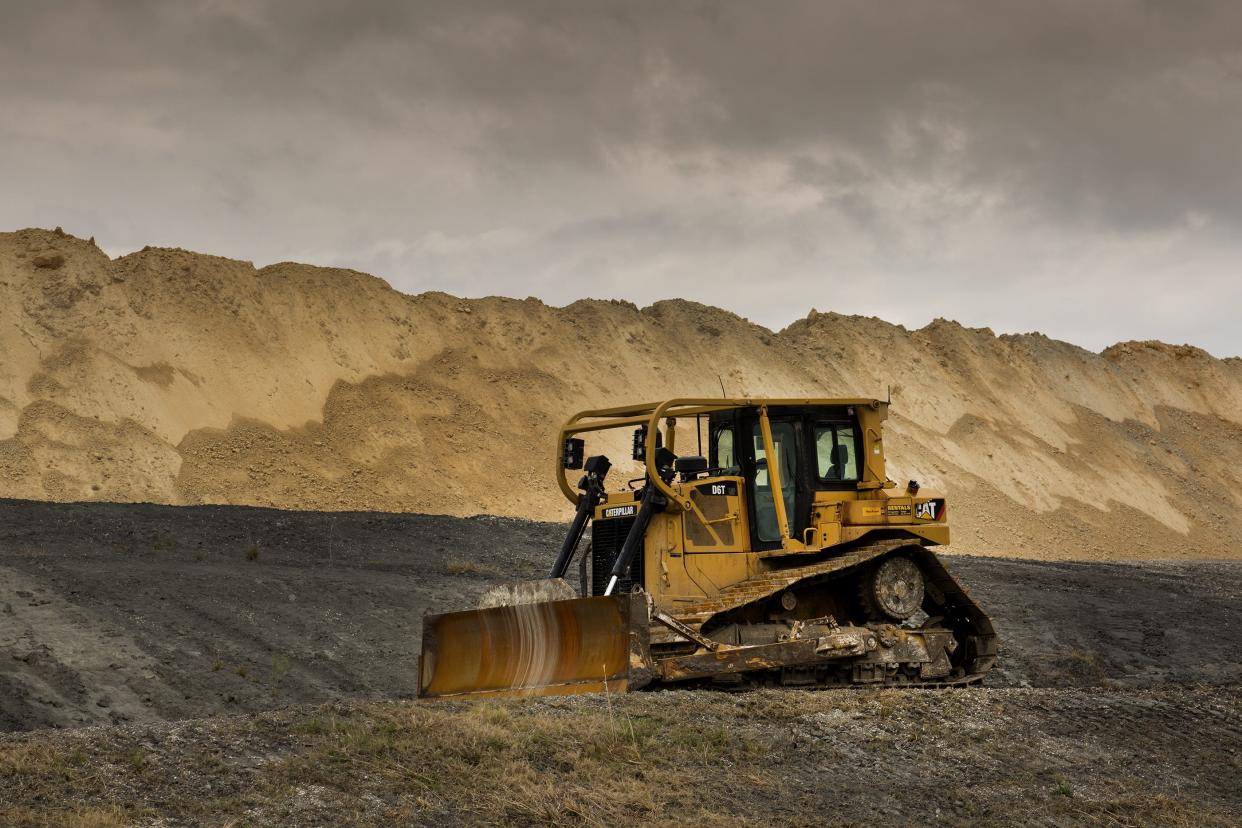Lakeland Electric will pay nearly $6.5 million to cap landfill storing coal waste

LAKELAND — Lakeland will pay nearly $6.5 million to have Lakeland Electric's landfill capped, sealing away the final traces of the city's former coal plant.
The commission approved a $10.75 million contract with Thalle Construction Company Inc. on Monday to construct the final cover of Lakeland Electric's Byproduct Storage Area for the decommissioned McIntosh Unit 3. Lakeland will be responsible for paying 60% of the cost, with Orlando Utilities Commission, paying for the remainder.
"This whole project underscores the value of having decommissioned a coal plant," Mayor Bill Mutz said. "We don’t have this ongoing problem with our current fuel supplies."
In the 1980s, Lakeland constructed the 45-acre landfill in order to store byproducts produced by the burning of coal, or coal combustion residuals. This consists of fly ash, bottom ash, synthetic gypsum and stabilized flue gas desulfurization.
In 2015, the U.S. Environmental Protection Agency created minimum criteria for the safe disposal of coal byproducts. The city hired Geosyntec Consultants Inc. to engineer and design a closure that met the EPA criteria.
It's estimated the city has 2.91 million cubic yards of coal combustion residuals stored on the property, according to a document Geosyntec submitted to the Florida Department of Environmental Protection.
Thalle Construction, based out of Hillsborough, North Carolina, will be paid to construct the landfill's final covering. The design features a textured polyethylene barrier, about four-hundreds of an inch thick, and a geocomposite drainage liner. These liners will be covered by 24 inches of soil, with 18 inches to act as a natural barrier and the top 6 inches to support vegetation. This will then be covered by an estimated 220,000 cubic yards of sod, based on permit plans submitted to the state's Department of Environmental Protection.
Watch it again: Lakeland Electric implodes portions of Unit 3 power plant
Mutz said he recognizes the 45-acre landfill needs to be sealed off, then maintained, and will remain the city's liability into the future.
"It is our major risk out there right now," said Tory Bombard, LE's assistant general manager of production.
Construction of the final cap on the landfill is anticipated to be complete by October. The commissioners approved paying $313,800 to Geosyntec Consultants to ensure the final barrier over the landfill is constructed to meet FDEP requirements.
Geosyntec has estimated it will cost the city about $98,500 annually in long-term care for the landfill. Lakeland will have to continue to provide groundwater monitoring to make sure it doesn't leach and spread, about $38,400 a year, and surface-water monitoring, $5,000 a year. The annual maintenance costs also factor in about $20,000 in landscaping maintenance, $9,000 for erosion control, $5,000 for stormwater drainage maintenance and administrative costs.
Bombard said OUC will share in a cost of the future maintenance, about 40%, as the land used for McIntosh Unit 3 and its operations remains jointly owned between the two utility companies at this time, splitting responsibility.
Sara-Megan Walsh can be reached at swalsh@theledger.com or 863-802-7545. Follow on X @SaraWalshFl.
This article originally appeared on The Ledger: Lakeland OKs contract to cap landfill storing power plant coal waste

